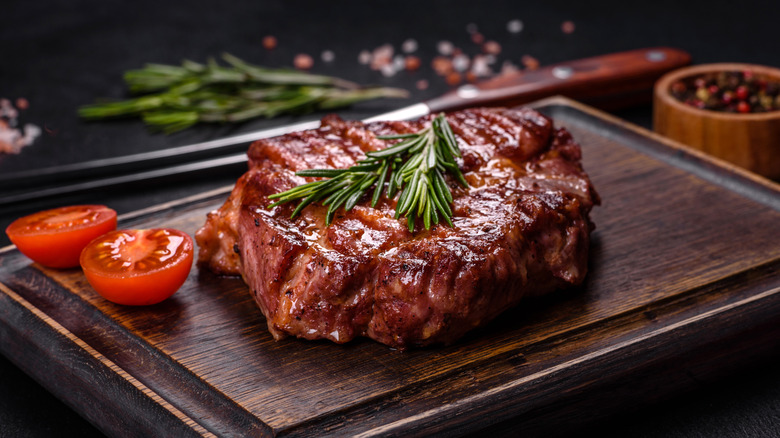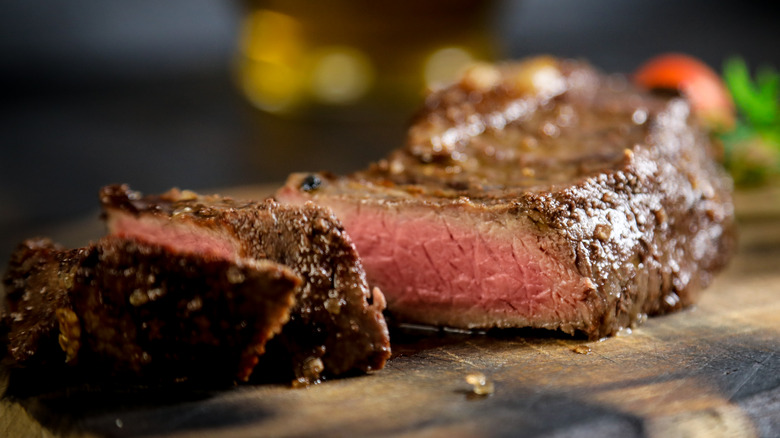The Most Important Questions To Ask At A Steakhouse, According To A Chef
As an entree, steak is about as fancy a meal as any carnivore can get at a restaurant — but unless you're a seasoned steak expert, it can be tough to know what to order. Luckily, Daily Meal spoke with Daniel Ontiveros, the corporate executive chef at Carversteak in Las Vegas, to find out what the right questions to ask your server are — which are, in turn, the key to must-know steakhouse secrets for next time you're eating out.
According to Ontiveros, it all boils down to two simple components. "It is important to ask where the meat is sourced from [and whether it] is grass fed or not," Ontiveros says, pointing out that choosing between grades like Wagyu beef, prime beef, or choice beef grades can make a huge difference when it comes to your dining experience. These questions not only help you understand the quality of the meat; they can also clarify whether or not you're getting a good deal for your meal. Per Ontiveros, this can even aid in asking your server follow-up questions to clue you in as to the flavor and texture of your desired steak.
Why sourcing, grazing, and meat grade matter for steak
Chef Daniel Ontiveros' advice about asking where your steak is sourced, along with its grade, comes with solid reasoning. In terms of the sourcing, this can give you clues as to what the cow's diet might be, which will ultimately affect your meat's flavor. Different countries have varying laws surrounding how beef should be raised, fed, and processed, which in turn can have an effect on the flavor and texture of your steak. You may also find some countries raise different types of cattle. (For instance, in the United States you'll find a large number of Angus or Belted Galloway cows, whereas in Colombia, Cebu is the most commonly raised cattle.)
Similarly, a cow's diet of grass versus grain can also help you understand what flavor to expect. Animals that have been grass-fed have a different flavor than those that have been raised purely on grain. With the former, you might pick up on gamier flavors, reminiscent of animals such as venison; the meat itself also tends to be leaner. On the other hand, beef from cows have been grain-fed rather than grass-fed usually has more marbling — which, as Ontiveros notes, "provides a rich and juicy flavor."
The grade of your meat, on the other hand, gives you a better idea of its texture. Grading tells you how much marbling, or fat distribution, is in the meat, which can indicate how tender and juicy a cut will be. So remember: If you find yourself unsure of what to order the next time you're at a fancy steak joint, ask your server where your steak is sourced; from there, depending on your specific tastes, you'll know exactly what to do.

